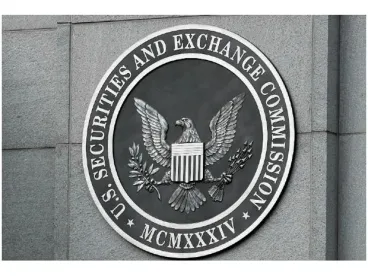Under Section 413(b)(2)(A) of the Dodd-Frank Act of 2010, the Securities and Exchange Commission (the “SEC”) is required to examine the definition of “accredited investor” under the Securities Act of 1933 (the “Securities Act”) every four (4) years to determine if it should be modified “for the protection of investors, in the public interest and in light of the economy.” Under the current test, an individual qualifies as an “accredited investor” for purposes of participating in a private offering of securities under Rule 506 promulgated under the Securities Act if he or she has at least $200,000 in annual income in each of the two most recent years ($300,000 for married couples) or $1 million in net worth without taking into account the primary residence. The last review of the “accredited investor” definition by the SEC was done at the time when the Dodd-Frank Act of 2010 became law in July 2010, at which time the definition was revised to exclude the value of a primary residence from the calculation of an individual’s net worth.
On November 14, 2013, SEC Chair Mary Jo White delivered a letter to Representative Scott Garrett, Chairman of the Sub-Committee on Capital Markets and Government-Sponsored Enterprises for the House Financial Services Committee, in which she discussed possible changes to the “accredited investor” definition and factors that will be considered by the SEC in its comprehensive review of this definition. Ms. White’s letter was written in response to an October 30, 2013 letter authored by Mr. Garrett which posed questions regarding the SEC’s plans with respect to its review of the “accredited investor” definition. In response to the questions raised by Mr. Garrett, Ms. White’s letter indicated that the SEC is examining:
- Whether the existing net worth and income tests are appropriate measures that should continue to be used;
- Whether individuals with certain professional accreditations, including certified public accountants, chartered financial analysts and experienced financial professionals, including registered investment advisors, consultants, brokers, traders, portfolio managers, analysts, compliance staff, legal counsel and regulators should be considered “accredited investors” regardless of whether they satisfy the income and net worth tests;
- Whether individuals with certain educational backgrounds focused on business, economics and finance should be considered “accredited investors” based solely on such backgrounds;
- Whether an expanded pool of “accredited investors” would increase liquidity in private placement investments and thereby reduce the risk profile of those investments;
- Whether reliance on a qualified broker or registered investment advisor should enable ordinary investors to participate in private placements; and
- Whether reducing the pool of “accredited investors” would harm the United States Gross Domestic Product.
In Ms. White’s November 15, 2013 letter, Ms. White indicated that the SEC agrees that the inclusion of more financially sophisticated investors in private offerings might improve the extent to which private offerings are scrutinized by investors generally. Additionally, Ms. White stated that the SEC was open to considering whether certain professional certifications and educational backgrounds may be useful proxies for financial sophistication, such as CPA or CFA designations, securities licenses and degrees in business, finance, accounting or economics. However, Ms. White noted that the SEC has already received comments expressing concern as to whether academic background alone is an appropriate measure for determining “accredited investor” status.
In anticipation of the SEC’s review of the “accredited investor” definition, various consumer advocacy groups have recently been advocating for an increase in the net worth and income requirements in the “accredited investor” definition. One proposal has suggested that the current financial thresholds of $1 million in net worth excluding the value of a primary residence or annual income of $200,000 should be raised based on inflation. The SEC and the Government Accountability Office (“GAO”) estimate that under these proposed “inflation” provisions, net worth requirements could escalate from the current $1 million to $2.5 million and the current annual income requirements could increase from the current $200,000 to approximately $450,000. It has also been estimated that if the thresholds are raised in this fashion, 60% of all accredited angel investors may no longer qualify to make angel investments in offerings under Rule 506.
The Angel Capital Association (the “ACA”) recently surveyed its members regarding the proposed “inflation” provisions and found that more than 25% of the ACA’s members would fall below the thresholds if the income and net worth criteria were simply adjusted for inflation. The ACA has indicated its belief that the impact from such a change to the “accredited investor” definition could be devastating, especially in areas outside of the Silicon Valley, Boston and New York metropolitan areas.
It is anticipated that the SEC should complete its review of the “accredited investor” definition by July 2014. The ACA is therefore recommending that all angel investors and other potential investors in private offerings contact the SEC to advocate against any changes to the “accredited investor” definition. In this regard, the ACA has provided an easily adaptable letter and email template on its website at http://www.angelcapitalassociation.org/aca-public-policy-protect-angel-funding.




 />i
/>i
